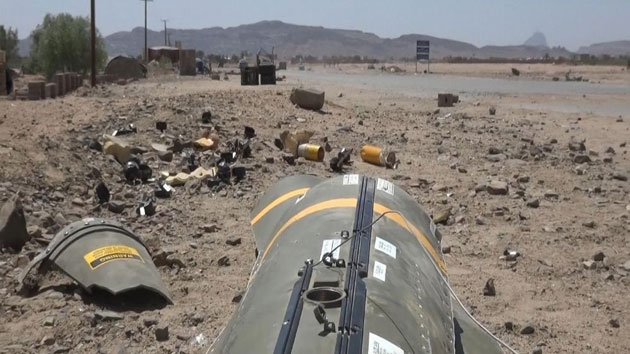
iStock/Blablo101
In a rare display of wariness over civilian casualties in Yemen, the United States is halting the sale of cluster bombs to Saudi Arabia, according to Foreign Policy. Last week, an unnamed American official said that the move comes amid rising concerns that Riyadh’s US-backed air campaign in Yemen has been dropping cluster bombs “in areas in which civilians are alleged to have been present or in the vicinity.”
Saudi Arabia has been repeatedly accused of indiscriminately bombing civilian areas and civilian infrastructure in its conflict with Houthi rebels in Yemen, resulting in the death of hundreds of noncombatants, many of them children. Remnants of American-made cluster bombs have been found near civilian areas. Since the war in Yemen began in March 2015, the United States has sold weapons and provided intelligence, support, and aerial refueling to the Saudi-led coalition backing the government.
Cluster bombs contain submunitions, or “bomblets”, that spread over large areas before detonating. Bomblets that do not explode or self-destruct when they’re deployed become de facto land mines. They remain on the ground until, as Megan Burke, director of the Cluster Munition Coalition, told Mother Jones last year, “someone or something comes along and triggers that explosion.” In 2008, an international treaty banned the weapons. The United States and other major arms exporting countries refused to sign it.
A 2008 Pentagon policy directive states that the weapons can only be used against “clearly defined military targets.” But, Burke said, “Once you give a weapon to another country, you lose control over how they’re going to use it.”
The suspension of cluster munition transfers applies specifically to the CBU-105 Sensor Fuzed Weapon, manufactured by the Rhode Island-based Textron Systems. In 2013, Textron landed a $641 million contract to supply Saudi Arabia with 1,300 of the controversial weapons. In production tests, the CBU-105 cluster bombs met the Pentagon’s requirement that 99 percent of bomblets explode, but Human Rights Watch has documented unexploded CBU-105 submunitions, also called “skeets” in their case, in multiple areas in Yemen. “We have a photo with one of the canisters sitting on the ground with four skeets just sitting there. They never deployed,” Steve Goose, the director of the arms division at Human Rights Watch, told Mother Jones. “According to Textron, that could never happen.”
It is unclear whether the export hold will affect ongoing shipments from the 2013 arms deal or if it will only affect future requests from Saudi Arabia. Matthew Colpitts, a spokesman for Textron Systems, told Foreign Policy that the company “does not comment on delivery dates with our customers.” Neither does the United States government.
















